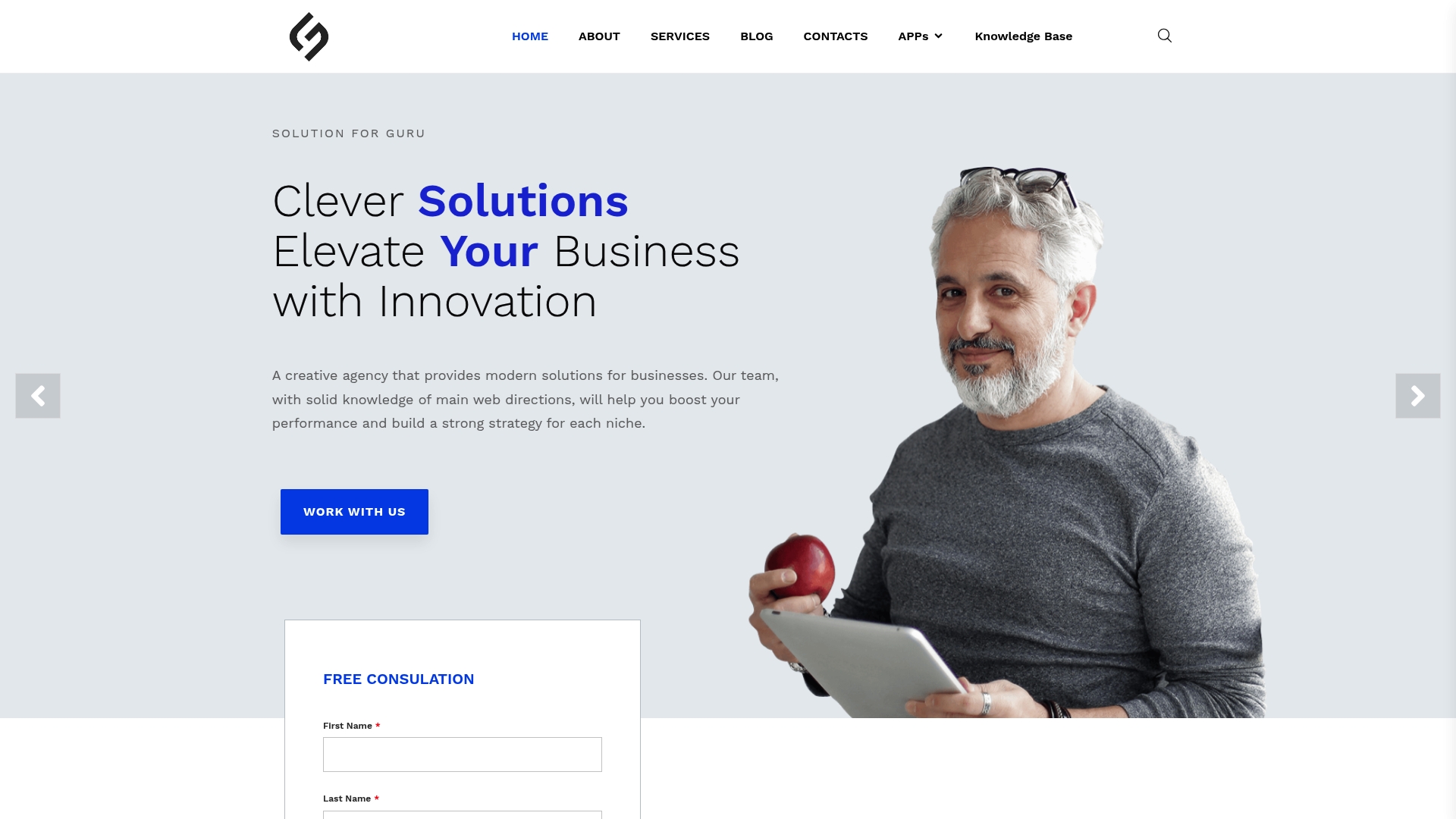Understanding Why Automate Business Processes for Growth

Turning business operations digital sounds like something from the future. Companies that automate their workflows can save serious time and money and some studies show that automation can cut labor costs by up to 60 percent. Most people think automation is just about getting rid of dull tasks, but the real shift is how smart technologies actually help companies predict problems before they even happen.
Table of Contents
- What Does Automating Business Processes Mean?
- The Importance of Automation for Efficiency and Cost Reduction
- Key Benefits of Automation in Different Business Areas
- How Automation Enhances Customer Experience and Satisfaction
- Navigating Challenges and Real-Life Examples of Successful Automation
Quick Summary
| Takeaway | Explanation |
|---|---|
| Automation enhances business efficiency. | Streamlining workflows through technology reduces errors and minimizes operational time. |
| Targeted automation benefits multiple areas. | Different departments like HR, finance, and customer service gain unique advantages from tailored automation strategies. |
| Intelligent systems adapt over time. | Modern automation incorporates learning algorithms that enhance performance based on real-time data analysis. |
| Proactive strategies mitigate implementation challenges. | Addressing potential obstacles like change management and data security is essential for successful integration. |
| Employee engagement is crucial for success. | Prioritizing staff training and transparent communication fosters a culture supportive of automation initiatives. |
What Does Automating Business Processes Mean?
Business process automation represents a strategic approach to transforming organizational workflows by leveraging technology to execute repetitive tasks and complex operational sequences without continuous human intervention. At its core, automation converts manual, time-consuming processes into streamlined digital workflows that enhance efficiency, reduce errors, and optimize resource allocation.
The Core Mechanics of Process Automation
Automation fundamentally involves using software tools and advanced technologies to replicate human actions across various business functions. According to Brookings Institute, robotic process automation develops specific rules for processing administrative tasks through programmed decision-making protocols. These tools can handle multiple scenarios by implementing predefined “if/then” logic sequences that trigger specific actions when certain conditions are met.
Key characteristics of business process automation include:
- Elimination of repetitive manual tasks
- Standardization of workflow procedures
- Reduction of human error potential
- Enhanced operational speed and consistency
Technological Foundation of Process Automation
Modern process automation leverages intelligent technologies like artificial intelligence, machine learning, and robotic process automation to create sophisticated digital ecosystems. These technologies enable systems to not just follow rigid instructions but also adapt and learn from ongoing operational patterns. Learn more about business process automation to understand how these advanced systems transform organizational productivity.
By integrating intelligent algorithms and data-driven decision-making frameworks, businesses can create dynamic automation solutions that go beyond simple task replication. These systems analyze historical data, predict potential outcomes, and continuously optimize operational workflows, making them far more powerful than traditional rule-based automation approaches.
The Importance of Automation for Efficiency and Cost Reduction
Automation transforms business operations by systematically reducing operational expenses and dramatically improving organizational productivity. By replacing manual processes with intelligent technological solutions, companies can unlock substantial economic advantages that directly impact their bottom line and competitive positioning.
Financial Impact of Process Automation
According to University of Cambridge research, digital solutions provide measurable economic benefits for businesses seeking operational optimization. The financial advantages of automation extend far beyond simple cost cutting and encompass comprehensive organizational transformation.

Key financial benefits of business process automation include:
- Significant reduction in labor costs
- Minimized operational expenses
- Enhanced resource allocation efficiency
- Decreased potential for human error related financial losses
Operational Efficiency Through Technological Integration
Modern automation technologies go beyond traditional workflow replacement by creating intelligent systems that continuously learn and adapt. Explore workflow automation strategies to understand how these advanced technologies can revolutionize business performance.
By implementing sophisticated automation frameworks, organizations can achieve unprecedented levels of operational precision. These systems analyze performance metrics in real time, identify potential bottlenecks, and proactively recommend optimization strategies. The result is a dynamic operational environment that consistently maximizes productivity while maintaining exceptional quality standards.
Key Benefits of Automation in Different Business Areas
Process automation delivers transformative advantages across multiple organizational domains, enabling businesses to reimagine traditional operational frameworks and unlock unprecedented levels of strategic efficiency. By implementing intelligent technological solutions, companies can create dynamic ecosystems that adapt and optimize performance across various functional departments.
Strategic Advantages in Core Business Functions
According to the U.S. Department of Agriculture, Robotic Process Automation (RPA) provides significant organizational benefits by reducing implementation time and increasing operational capacity. Different business areas experience unique advantages through targeted automation strategies.
Key business domains experiencing substantial transformation include:
- Human Resources: Streamlining recruitment, onboarding, and employee management processes
- Finance: Automating complex accounting, invoicing, and financial reporting workflows
- Customer Service: Implementing intelligent chatbots and automated support systems
- Sales and Marketing: Creating personalized engagement pipelines and lead tracking mechanisms
Technological Integration and Performance Optimization
Modern automation technologies transcend traditional process replacement by creating intelligent, adaptive systems that continuously learn and evolve. Explore advanced HR software solutions to understand how targeted technological interventions can revolutionize organizational performance.
By strategically implementing sophisticated automation frameworks, businesses can develop comprehensive digital transformation strategies. These intelligent systems analyze real-time performance metrics, identify potential operational bottlenecks, and proactively recommend optimization strategies.
Below is a table summarizing how automation drives benefits across key business areas, highlighting the unique advantages for each department.
| Business Area | Automation Application | Unique Benefit |
|---|---|---|
| Human Resources | Recruiting, onboarding, employee management | Faster hiring, reduced paperwork |
| Finance | Accounting, invoicing, reporting | Lower error rates, quicker processing |
| Customer Service | Chatbots, automated support | 24/7 support, immediate responses |
| Sales & Marketing | Lead tracking, engagement pipelines | Personalized outreach, improved conversion |
| Operations | Workflow management, task automation | Elevated consistency, optimized resource use |
How Automation Enhances Customer Experience and Satisfaction
Automation has transformed customer interactions from transactional exchanges to personalized, intelligent experiences that anticipate and address user needs with unprecedented precision. By leveraging advanced technological solutions, businesses can create seamless communication channels that dramatically improve customer engagement and satisfaction levels.
Intelligent Customer Interaction Frameworks
According to the U.S. General Services Administration, automation technologies enable organizations to collect and analyze customer feedback more efficiently, creating responsive systems that continuously adapt to user preferences and expectations.
Key strategies for enhancing customer experience through automation include:
- Personalized Communication: Tailoring interactions based on individual customer data
- 24/7 Availability: Implementing intelligent chatbots and automated support systems
- Rapid Response Mechanisms: Reducing wait times and resolving queries instantly
- Predictive Service Delivery: Anticipating customer needs before they arise
Advanced Technologies Driving Customer Satisfaction
Modern automation goes beyond simple task replacement by creating intelligent, empathetic interaction ecosystems. Explore digital customer experience insights to understand how advanced technologies are revolutionizing customer engagement strategies.
By integrating sophisticated machine learning algorithms and natural language processing technologies, businesses can develop customer interaction platforms that understand context, emotion, and individual preferences. These systems analyze vast amounts of interaction data in real time, enabling organizations to create highly personalized, proactive service experiences that significantly exceed traditional customer support models.

Navigating Challenges and Real-Life Examples of Successful Automation
While business process automation offers tremendous potential, organizations must strategically approach implementation to maximize benefits and mitigate potential risks. Understanding common challenges and learning from successful real-world applications can help businesses develop robust automation strategies that deliver tangible results.
Strategic Implementation Considerations
According to CIO Hub research, successful automation requires comprehensive planning and organizational alignment. Companies must anticipate and address potential obstacles to ensure smooth technological integration.
Key challenges in automation implementation include:
- Change Management: Overcoming employee resistance and cultural barriers
- Technical Complexity: Integrating new technologies with existing infrastructure
- Cost Management: Balancing initial investment with long-term returns
- Data Security: Ensuring robust protection of sensitive organizational information
Real-World Automation Success Narratives
Practical examples demonstrate the transformative power of strategic automation. Learn about custom automation techniques to understand how businesses can develop tailored technological solutions.
Successful organizations approach automation as a holistic transformation strategy, not merely a technological upgrade. They invest in comprehensive training programs, foster a culture of continuous learning, and maintain flexible implementation frameworks that allow gradual, measured technological integration.
The following table outlines common challenges businesses face during automation implementation and the strategies referenced in the article to effectively address each obstacle.
| Implementation Challenge | Description | Proactive Strategy |
|---|---|---|
| Change Management | Employee resistance, cultural barriers | Staff training, transparent communication |
| Technical Complexity | Integrating with existing infrastructure | Flexible frameworks, gradual integration |
| Cost Management | Upfront investment concerns | Balance initial costs with long-term ROI |
| Data Security | Protecting sensitive organizational data | Robust security protocols |
Unlock the True Value of Business Process Automation for Growth
Are you frustrated with manual business tasks slowing your growth? The article shows how repetitive work, human error, and scattered workflows can keep you from reaching your goals. With insights into automation’s ability to streamline operations and boost efficiency, you now know the hidden barriers holding back your business.
Explore practical, step-by-step solutions that match your needs right now.

Stop letting inefficiencies and outdated processes limit your success. Solution4Guru helps you turn automation into real results. Whether you need guidance for a smooth digital transformation, want to see proven strategies in action, or are ready to discover the right tools for your business, our website is your starting point. Take control of your workflow and drive measurable growth today. Visit our Guides section or schedule a free consultation to see how automation can transform your business for good.
Frequently Asked Questions
What is business process automation?
Business process automation is the use of technology to transform organizational workflows by executing repetitive tasks and complex operations without continuous human intervention, enhancing efficiency and reducing errors.
How can automation reduce operational costs?
Automation reduces operational costs by minimizing labor expenses, optimizing resource allocation, and decreasing the potential for human error, ultimately impacting the bottom line positively.
What technologies are used in process automation?
Common technologies used in process automation include robotic process automation (RPA), artificial intelligence, and machine learning, which enable intelligent and adaptive systems that learn from ongoing operations.
In which business areas can automation provide the most benefits?
Automation can significantly benefit areas such as human resources, finance, customer service, and sales and marketing by streamlining processes like recruitment, accounting, automated support, and personalized engagement.



